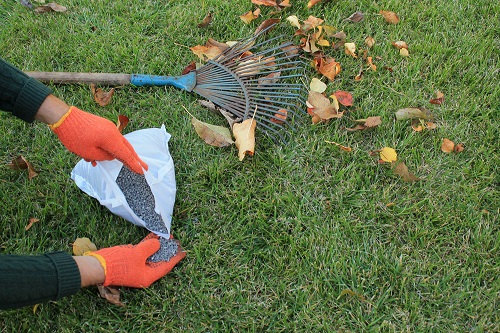
Spring is the ideal time to fertilize your lawn and give it a much-needed nutritional boost after the long winter months. With temperatures warming up, now is the perfect time to ensure that your grass will be healthy and thrive during those hot summer days. Here are some lawn care tips you need to know.
Proper fertilizer can help improve soil quality by providing essential nutrients like nitrogen, phosphorous, and potassium. Additionally, when applied correctly with consistent lawn maintenance habits throughout the season, you can foster deep root development to make for an overall lusher grass appearance over time. In this post, we’ll explore why spring is often seen as the optimal season for fertilizing your lawn and tips on maximizing its health benefits in preparation for warm weather.
Lawn Care Tips
What is fertilizer and what are the benefits of fertilizing a lawn
Fertilizer is a nutrient-rich material applied to soil to help growing plants and grasses thrive. Used in lawns, it helps enhance the health and appearance of turfgrass by providing essential substances to the soil.
There are many beneficial effects associated with fertilizing a lawn, such as stronger root systems, improved soil structure and texture, better stress tolerance during drought or other adverse weather conditions, more lush foliage, and improved weed control. Taking the time to fertilize your lawn regularly provides a number of advantages for creating healthy green grass that can stand up against weeds, insects and other external factors.
When is the best time to fertilize your lawn
Fertilizing your lawn is a great way to improve its health, lushness, and vibrancy. However, timing is everything when it comes to successful fertilization.
Typically, the best time to fertilize your lawn depends on the type of grass you are growing. For warm-season grasses that do better in warmer weather such as Bermuda Grass, St. Augustine Grass, and Zoysia Grass, mid-summer fertilization maximizes its greening potential while still allowing enough time for the roots to develop before winter arrives.
On the other hand, cool-season grasses like Tall Fescue and Rye Grass need more frequent feedings throughout the spring and fall which helps take advantage of their growth cycles. Additionally, in both warm-season and cool-season grasses, fertilization applications should be considered prior to any periods of extended dry weather or extreme heat since these can severely hurt the overall health of your lawn.
Tips for selecting the right fertilizer for your lawn
When successfully fertilizing your lawn, choosing the right fertilizer for the job is key. To select the best fertilizer for your lawn, start by considering the type of grass you are caring for. Different fescues and ryegrasses have different nutrient requirements, so select a formula that meets your grass’ needs.
Additionally, consider factors such as the time of year and soil condition before settling on a fertilizer. For example, applying a winter-formula fertilizer in spring can increase stress on delicate turf grasses. By doing some research up front and selecting the most appropriate product, you can be confident that you are setting yourself up for success in achieving a lush and healthy lawn all season long.
How to apply fertilizer correctly
Applying fertilizer correctly is an important step in ensuring your plants receive the nutrients they need for optimum growth. The first thing to do is to determine what type of fertilizer best suits the plants you are caring for; a general-purpose fertilizer may not be the best option. From there, correct amounts must be applied; too much or too little can hurt your plants.
To apply the fertilizer, carefully sprinkle or spread it in an even layer around each plant and some distance away from their bases, avoiding blotches or clumps forming. Once all the critical areas are covered, check the directions on the package and water as required. Applying fertilizer correctly is an essential part of plant health, but only if done correctly – keep these tips in mind and get growing!
Potential issues can occur when fertilizing incorrectly. Fertilizing incorrectly can have long-term adverse effects on plants, from plant weakness and poor color to stunted growth, reduced blooming, and even death.
Improper fertilization also affects the environment by making the soil too acidic or alkaline and depleting certain nutrients. Over-fertilization of plants can lead to nutrient burn, which causes discoloration or yellowing of leaves.
Furthermore, when fertilizer leaches into local groundwater due to incorrect application, harmful chemicals—including nitrates and phosphate—can seep into rivers and streams, creating an imbalance in surrounding ecosystems. To avoid these issues, it is important to separate fertilizers containing various minerals and adjust them according to your specific soil type. Additionally, thorough research should be conducted to ensure proper fertilization methods are being followed.
Call Conway Lawn Care Service now if you need help taking care of your lawn.
Like our Facebook page for more great info about lawn care services.
Conway Lawn Care Service
Conway, SC 29526
843-353-2259
http://conwaylawncareservices.com/
No comments:
Post a Comment